
This article is more than
1 year oldAn Israeli official has anonymously confirmed the military is “preparing a response” to the Iranian missile barrage that targeted Israel earlier this week.
Hezbollah claims to have driven off an Israeli ground incursion just inside Lebanon’s southern border, saying the Israelis suffered casualties and were “forced to retreat”.
The alleged incursion happened at about 11pm on Friday, local time, according to the militant group. Israel has yet to comment on the incident.
Meanwhile Israel has conducted renewed air strikes on the Lebanese capital Beirut, causing multiple explosions in its southern suburbs. Civilians in the area were warned to move clear of specific buildings before the strikes.
Concerns continue to grow of further escalation between Israel and Iran, which backs both Hezbollah in Lebanon and Hamas in the Gaza Strip.
Follow for updates on the Middle Eastern conflict.
Israel military official says ‘preparing response’ to Iran attack
An Israeli official told AFP on Saturday that the military is “preparing a response” to the Iranian missile barrage that targeted Israel earlier this week.
“The IDF (Israeli military) is preparing a response to the unprecedented and unlawful Iranian attack on Israeli civilians and Israel,” the military official said on condition of anonymity as he was not authorised to speak publicly on the issue.
He did not elaborate on the nature or timing of the response.
Israel’s left-leaning newspaper Haaretz, quoting the military, reported that the military’s response will be “significant”.
“The IDF is preparing for a significant strike in Iran following this week’s missile attack from Tehran,” the newspaper reported.
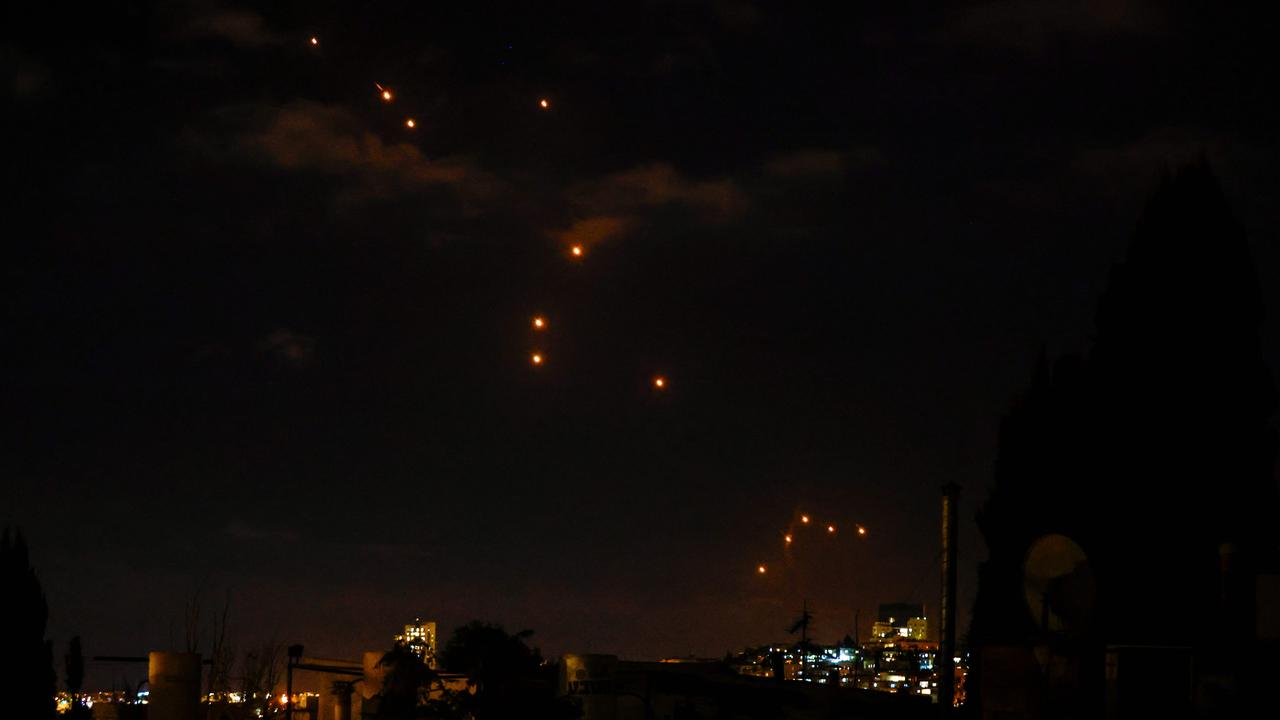
“The military does not rule out the possibility that Iran may launch missiles at Israeli territory again after the Israeli attack,” it added.
On October 1, Iran launched around 200 missiles at Israel, its second direct attack on the country in less than six months.
Most of the missiles were intercepted by Israel’s aerial defence system, while some hit military bases but did not cause major damage or casualties.
Iran said the missiles were launched to avenge the assassination of Hezbollah chief Hassan Nasrallah who was killed by an Israeli air strike in the Lebanese capital on September 27.
Iran’s missile attack was also in response to the death of the former political head of Hamas, Ismail Haniyeh, who was killed in Tehran on July 31.
Both Iran and Hamas blamed Israel for Haniyeh’s killing. Israel has not commented on his death.
Meanwhile, Syrian President Bashar al-Assad said Saturday that Iran’s second-ever missile attack on Israel this week was a “lesson” for Israel, his office said.
The missile attack on Tuesday evening, just days after Israel killed the leader of Iran-backed Lebanese militant group Hezbollah, was “a strong response and taught the Zionist entity a lesson,” Assad was quoted as saying as Iranian Foreign Minister Abbas Araghchi visited Damascus.
Israel issues first Gaza evacuation warning in weeks
For the first time in weeks, the Israeli army warned residents to evacuate part of central Gaza on Saturday as it prepares to use “great force” against Hamas fighters in the area.
The evacuation call is the first in weeks for Gaza as the Israeli military has largely shifted its focus to fighting Hezbollah in Lebanon.
“Hamas and the terrorist organisations continue their terrorist activities within your area and, as a result, the IDF (military) will act with great force against these elements,” the evacuation order posted by the Israeli army said, with an attached map listing the blocks to be evacuated.
Palestinians living in areas near the Netzarim Corridor in central Gaza have been warned to evacuate under the latest order posted on X.
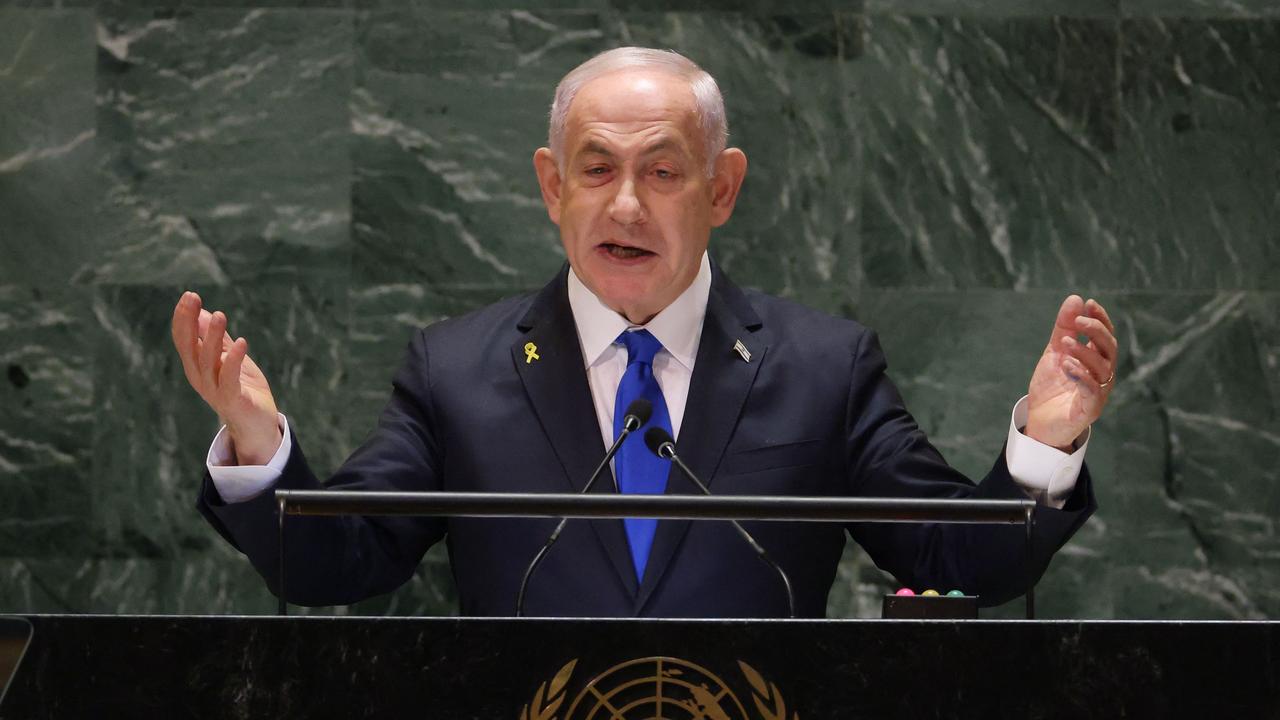
Israel has destroyed large swathes of Gaza since Hamas’s October 7 attack last year, with Prime Minister Benjamin Netanyahu repeatedly pledging to secure total victory over the militants.
A year later, the confirmed death toll from the Hamas attack - including hostages killed in captivity - has reached 1,205 on the Israeli side, most of them civilians, according to an AFP tally based on Israeli official figures.
Militants abducted 251 hostages during the attack, 97 of whom are still held in Gaza, including 33 the Israeli military has said are dead.
In Gaza, nearly all of its 2.4 million residents have been displaced at least once.
At least 41,825 people have been killed, most of them women or children, according to the territory’s health ministry. The United Nations has acknowledged the figures as reliable.
The Israeli military has often returned to areas where it has previously conducted operations in response to reports of resurgent Hamas activity.
UN says Lebanon peacekeepers ‘remain in all positions’ despite Israel request
The United Nations peacekeeping force in Lebanon said Saturday it will not leave positions in the country’s south despite an Israeli request to “relocate”.
“On September 30, the IDF notified UNIFIL of their intention to undertake limited ground incursions into Lebanon. They also requested we relocate from some of our positions,” the UN Interim Force in Lebanon said in a statement, adding that “peacekeepers remain in all positions and the UN flag continues to fly.”
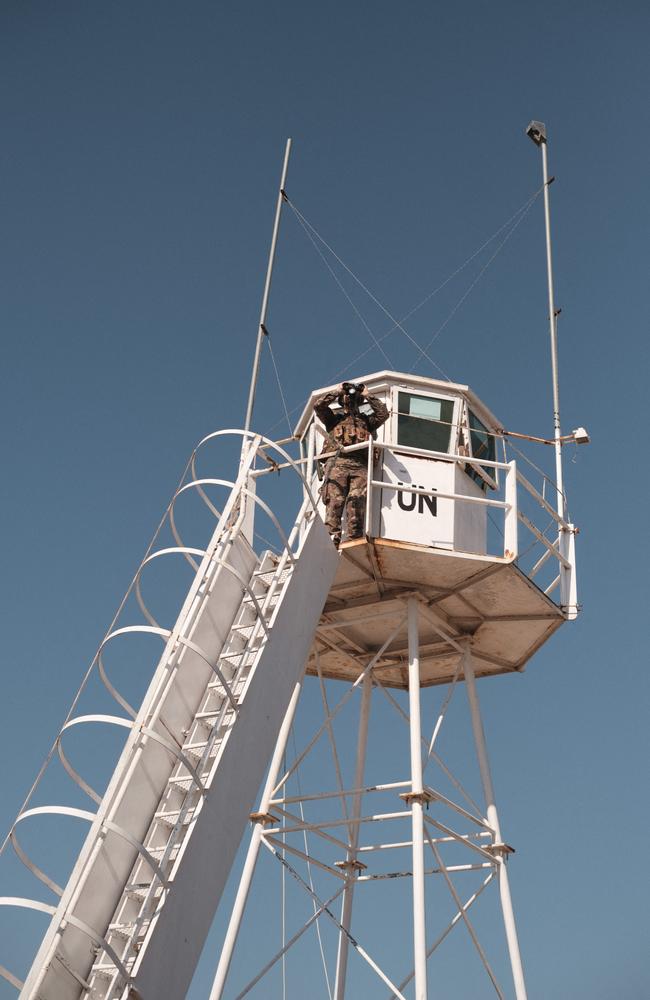
On Friday, UN peacekeeping chief Jean-Pierre Lacroix told reporters the force would “continue to do their best to implement their Security Council mandate in obviously very difficult conditions.”
UNIFIL is mandated by the Security Council to assist the Lebanese army in maintaining the area free of weapons and armed personnel, except for those of the Lebanese state.
This has led to friction with Iran-backed Hezbollah, which effectively controls southern Lebanon.
The Israeli military asked the force earlier this week to prepare to relocate more than 5km from the border between Israel and Lebanon - known as the Blue Line - “as soon as possible, in order to maintain your safety,” Reuters reports.
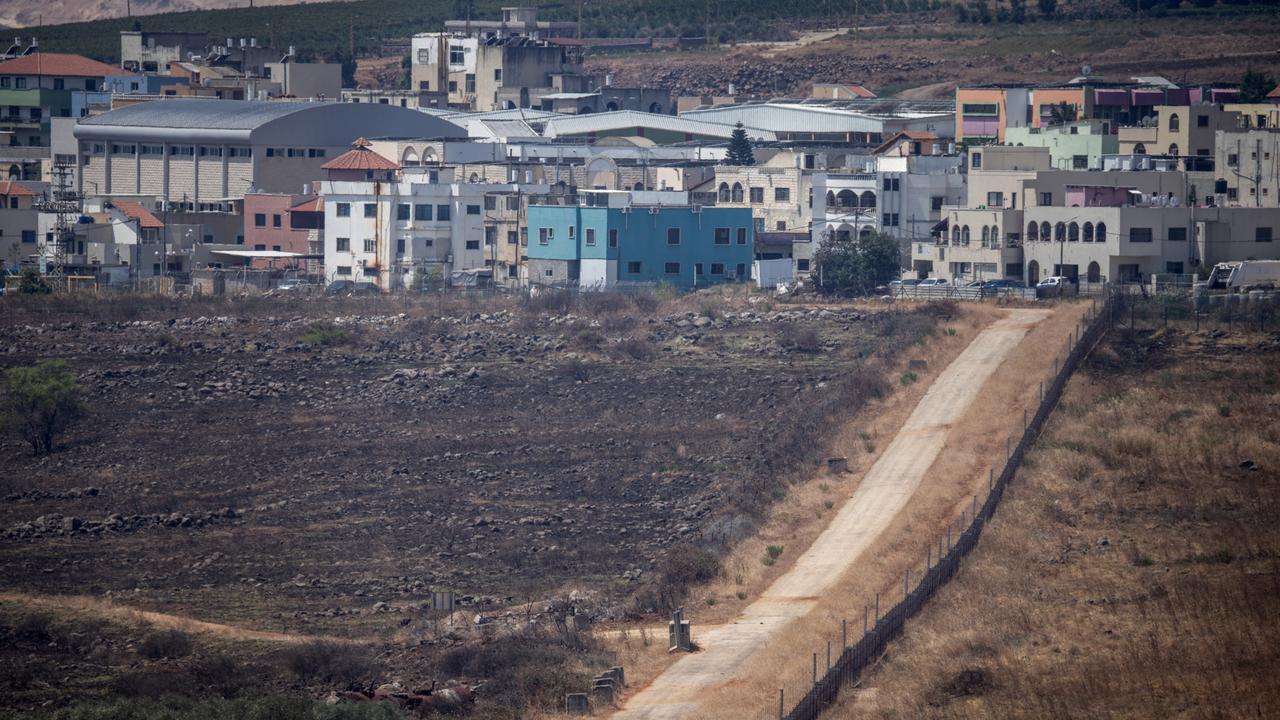
“The peacekeepers are currently staying in their position, all of them,” Lacroix told reporters.
“The parties have an obligation to respect the safety of and security of peacekeepers, and I want to insist on that.”
Lacroix said UNIFIL was “the only channel of communication” between conflicting parties.
The mission, which works to protect civilians and support the safe movement of civilians and delivery of humanitarian aid, operates between the Litani River in the north and the Blue Line in the south.
According to its website, it consists of more than 10,000 troops from 50 countries and about 800 civilian staff.
‘Forced to retreat’: Alleged Israeli ground incursion
Hezbollah claims to have encountered, and repelled, an Israeli ground incursion near the town Odaisseh, just across one part of the southern border between Israel and Lebanon.
The terrorist group alleges that Israeli troops tried to advance towards the village at about 11pm on Friday, local time.
“Fighters from the Islamic Resistance engaged them, resulting in a massive explosion in the advancing force, which was forced to retreat, causing casualties among their ranks,” Hezbollah said in a statement.
Hezbollah claims Israeli forces advanced towards Odaisseh again a few hours later, at 1.50am, with renewed clashes now “ongoing”.
The IDF has yet to comment on the alleged skirmishes.
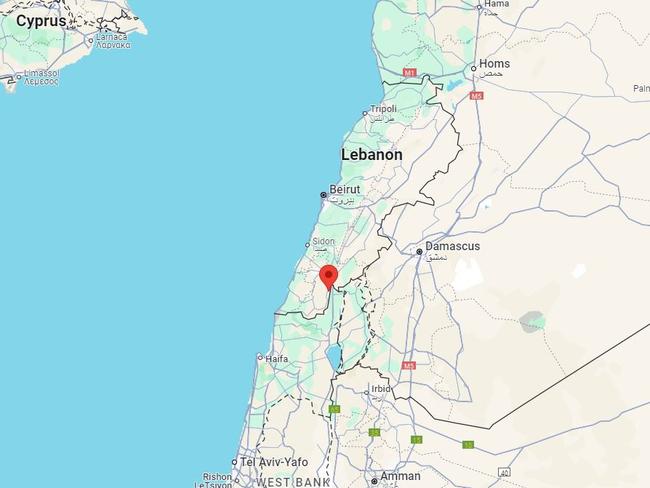
Iran insists it ‘will not back down’
Iranian supreme leader Ali Khamenei has vowed that his country and its allies in the region will keep fighting Israel.
Khamenei’s address in Tehran followed Iran’s second-ever direct attack on Israel.
“The resistance in the region will not back down with these martyrdoms, and will win,” Khamenei said in Arabic.
He labelled Israel’s government a “malicious regime” that would “not last long”.
There was no immediate response from Israeli leaders as much of the country celebrated the Jewish new year.
‘Hit the nuclear’: Trump urges aggression
Donald Trump, who will become president again in January if he wins November’s election, has told Israel it should strike Iran’s nuclear facilities, contradicting the Biden administration’s attempt to dissuade the Israeli government from making such a move.
Mr Trump made the remarks while speaking at a campaign event in North Carolina.
“They asked (Biden), what do you think about Iran? Would you hit Iran? And he goes, ‘As long as they don’t hit the nuclear stuff.’ That’s the thing you want to hit, right?” he said.
“I think he’s got that one wrong. Isn’t that what you’re supposed to hit? I mean, it’s the biggest risk we have, nuclear weapons.
“When they asked him that question, the answer should have been hit the nuclear first, and worry about the rest later. If they’re going to do it, they’re going to do it. But we’ll find out, whatever their plans are.”
Earlier in the week, when asked whether he supported the idea of striking Iran’s nuclear facilities, Mr Biden responded: “The answer is no.”

‘Be more careful’: Biden’s stern words for Israel
Speaking in Washington D.C. overnight, Mr Biden reiterated his support for Israel, though he also hinted at a level of exasperation with Israeli Prime Minister Benjamin Netanyahu.
“No administration has helped Israel more than I have,” Mr Biden said, adding that Mr Netanyahu “should remember” it.
“Israel has every right to respond to vicious attacks on them, not just from Iran but from everyone from Hezbollah, the Houthis. But the fact is they have to be very much more careful about dealing with civilian casualties,” he said.
The US government has confirmed one American citizen, Kamel Jawad, was killed by an Israeli strike in Lebanon. The State Department said it was “alarmed” by the death.
“It is a moral and strategic imperative that Israel take all feasible precautions to mitigate civilian harm. Any loss of civilian life is a tragedy,” it said in a statement.
Mr Biden added oil facilities to the list of targets he is urging Israel not to hit in a retaliatory strike against Iran.
That’s despite him on Thursday, US time, saying there had been “discussion” about straining Iran's extensive oil infrastructure.
Mr Biden had also already said “the answer is no” to suggestions that Israel could try and blow up Tehran’s nuclear bomb research centres.
Speaking in Washington D.C. on Friday, Mr Biden said he didn’t believe Israeli PM Benjamin Netanyahu had yet made a decision on a strike.
“If I were in their shoes, I’d be thinking about other alternatives than striking oilfields,” he said.
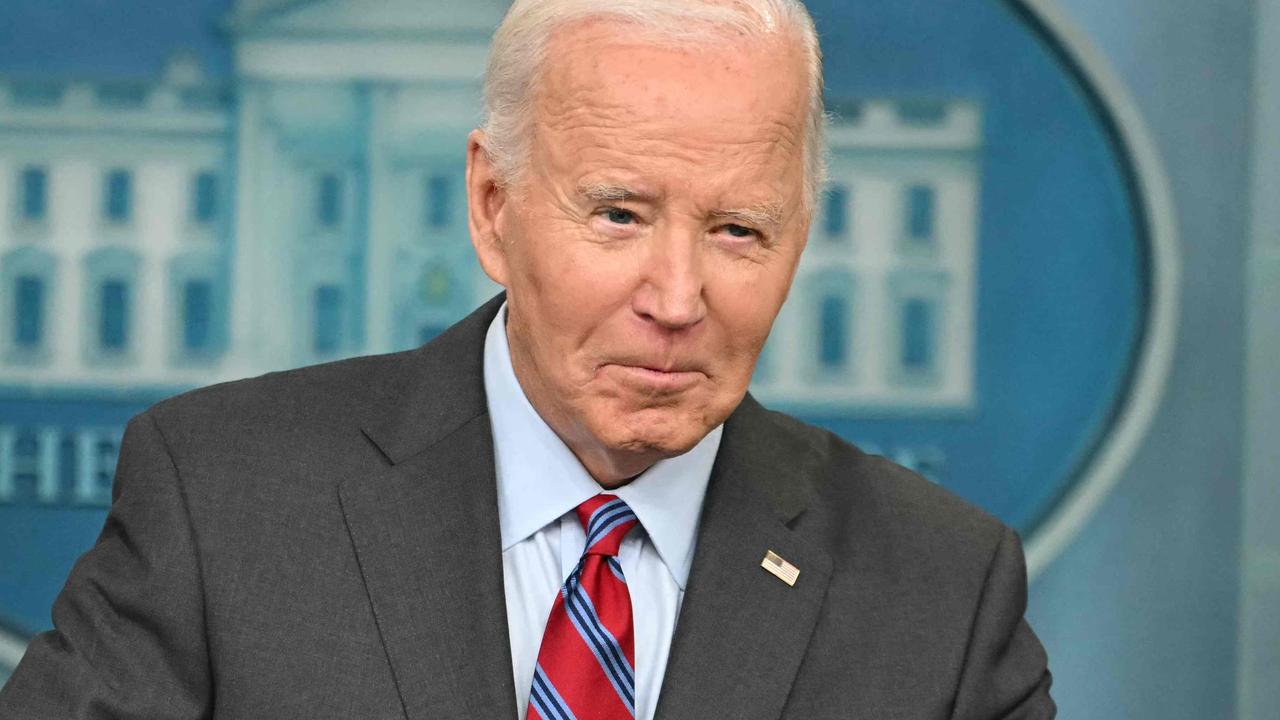
‘Evacuate now’: Israel strikes suburb
Israel has launched at least one strike on the southern suburbs of the Lebanese capital, Beirut, with an explosion reported and smoke seen rising over the city.
The Israeli Defence Forces issued a pair of warnings to residents of the areas beforehand, urging civilians to get clear of specific buildings.
“A new urgent warning to the residents of the southern suburbs, specifically those in the building specified in the map and located in the Burj al-Barajneh neighbourhood,” said the message, written in Arabic.
“You are located near Hezbollah facilities and interests, against which the IDF will operate in the near future. For your safety and the safety of your family members, you must evacuate this building and the surrounding buildings immediately and stay away from them at a distance of no less than 500 meters.”
An identical warning was issued, a short time afterwards, for a building in the Choueifat Al-Umara neighbourhood.
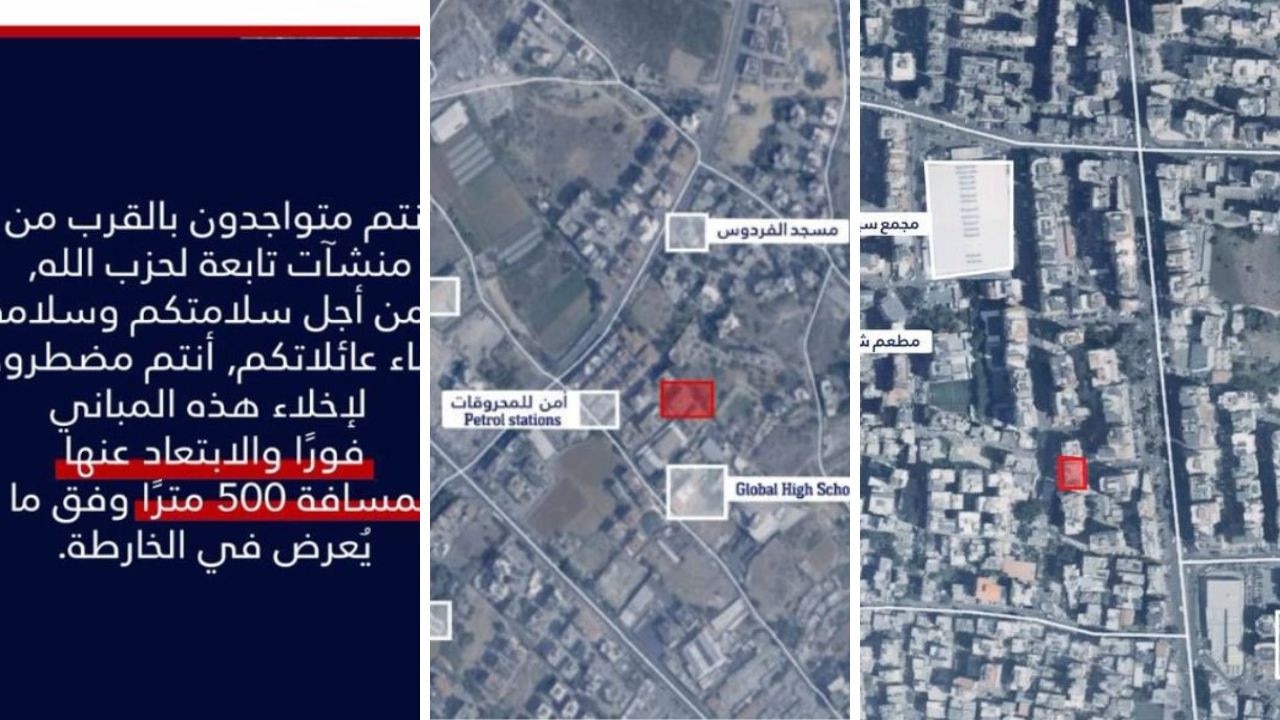
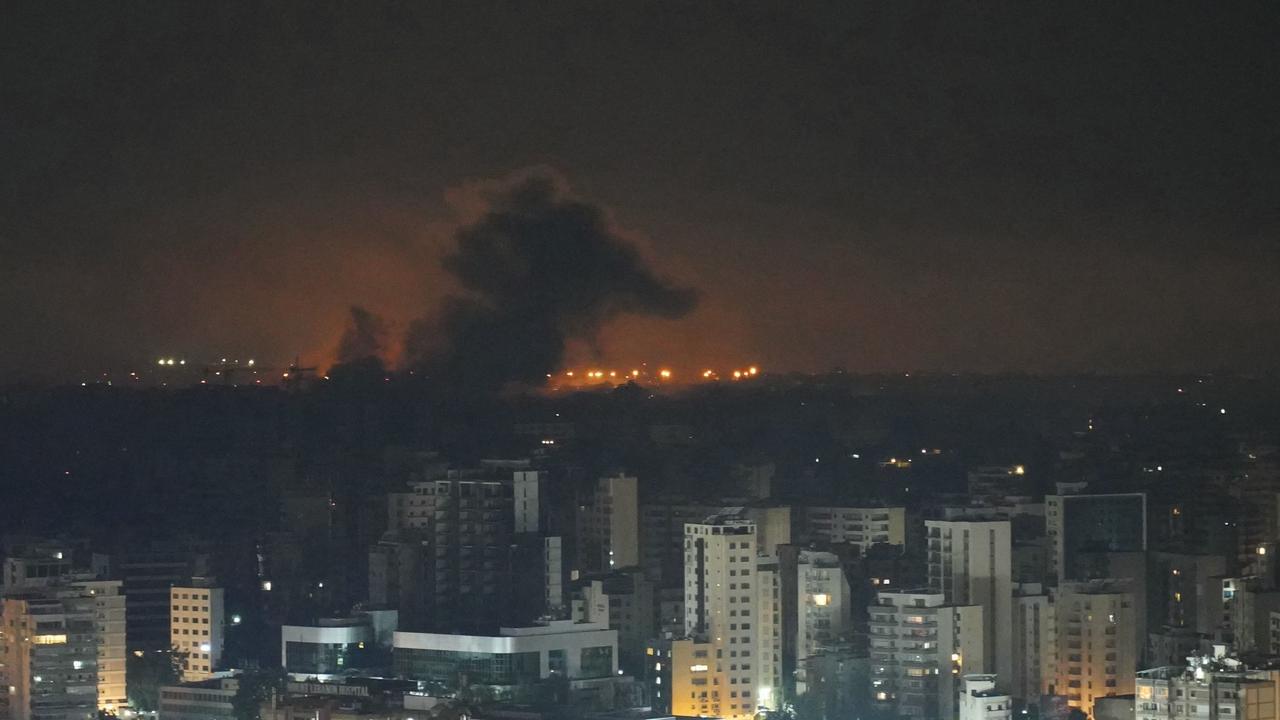
US retaliates after tanker explosions
The US has conducted air strikes against areas of Yemen controlled by the Houthi rebels, Reuters reports.
Much of western and northwestern Yemen is controlled by the Houthis, a terrorist group backed by Iran. For months, the Houthis have been shooting missiles at both Israel and ships in the busy Red Sea.
On Friday, the US said it had hit around 15 targets in Yemen, including the major city of Sanaa, Hodeidah Airport on the Red Sea coast, and areas of another city.
“These targets included Houthi offensive military capabilities,” US Central Command said.
“These actions were taken to protect freedom of navigation and make international waters safer and more secure for US, coalition, and merchant vessels.”
That was an apparent response to a dramatic attack earlier this week, by the Houthis, which saw tankers in the Red Sea suffer huge explosions.
Images from the scene showed an unmanned boat packed with explosives approaching a ship and blowing up as it was almost at the vessel. Another boat was reportedly hit as well.
The Houthis said they had targeted a British ship, the Cordelia Moon, 64 nautical miles northwest of Hodeidah. A series of missile missed the ship.
However, the ship appears to no longer be under British ownership. Rather it was Panama registered and operated by an Indian company.
Indeed, the ship may have been part of the so-called “dark fleet” transporting Russian oil around the world, avoiding embargoes. Which would be awkward for the Houthis, as Russia has reportedly been supplying it with weapons.
It’s not the first time the Houthis have reportedly mistaken the ownership of vessels in the Red Sea.
While the attack was dramatic and did cause some damage, the crew of the ship have been reported as safe and the ship proceeded to its next port of call.
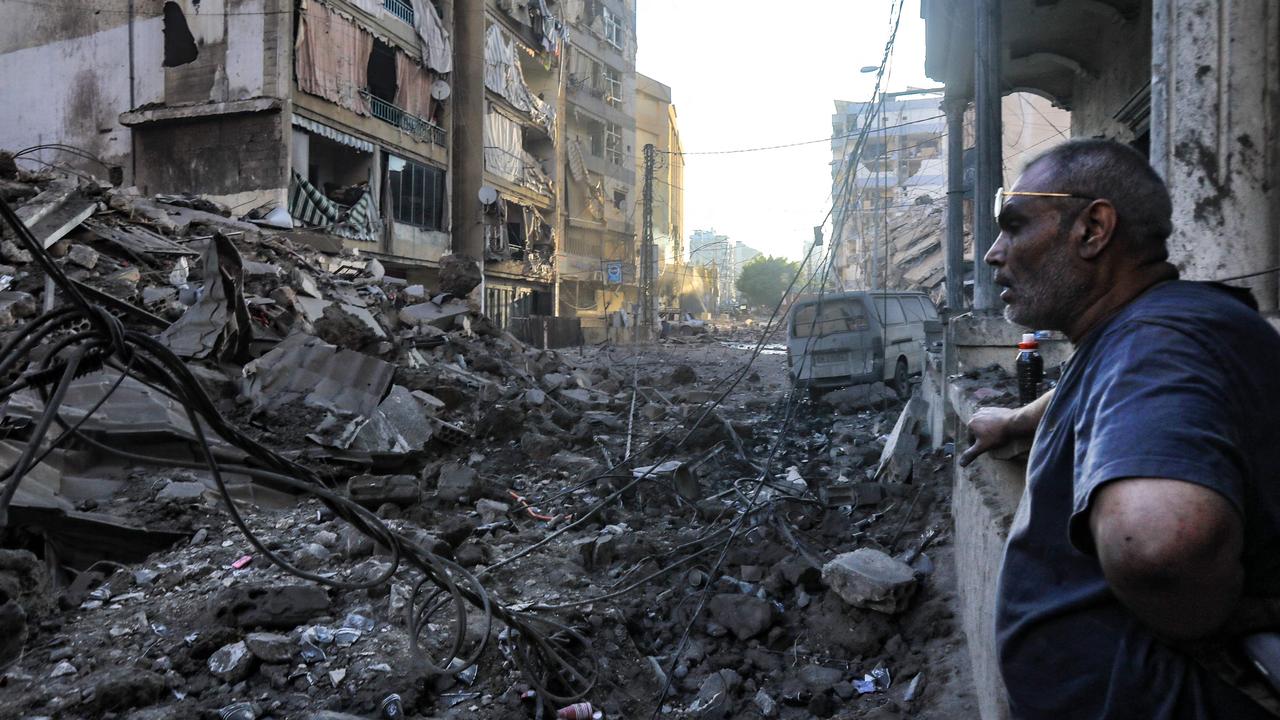
Qantas puts on flights for Aussies in Lebanon
Qantas will operate two non-stop flights between Cyprus and Sydney, to help Australians in Lebanon get home on behalf of the Australian Government.
The flights will be operated using a Qantas Boeing 787 and will be able to carry up to 440 Australians back home.
The first service is expected to depart Larnaca in Cyprus on Monday evening (local time), arriving in Sydney on Tuesday.
The second direct Dreamliner service is expected to depart on Wednesday.
The national carrier will operate these assisted-departure flights free of charge for the Australian Government, with no cost to those travelling on the flight. The airline is working to obtain the necessary approvals.
Israel may have killed likely new Hezbollah leader
Israel is increasingly confident it has killed the man slated to be Hezbollah’s next leader – before he even had chance to take up the post.
Israel's Channel 12 has reported that the government’s growing assessment is that the presumed successor to Hezbollah chief Hassan Nasrallah, Hashem Safieddine, was killed in a strike on Beirut on Thursday.
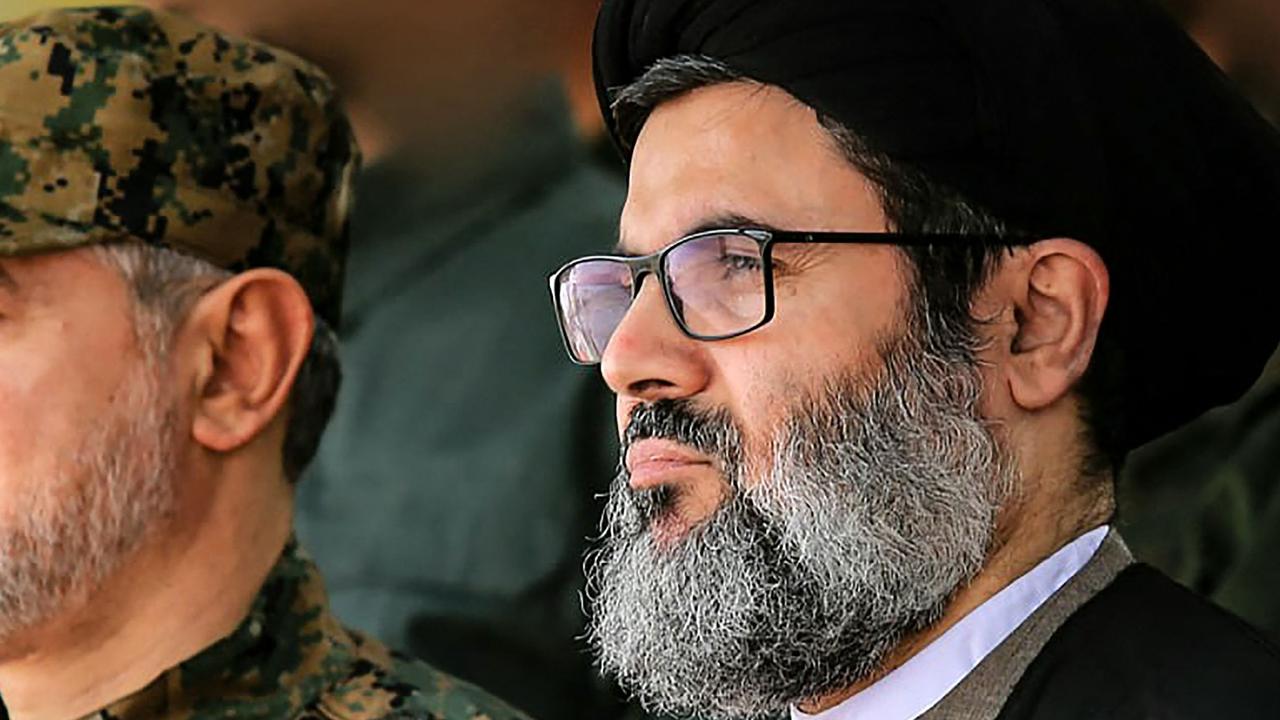
Iran threatens Israel’s power stations, oil refineries
The deputy commander of Iran’s Islamic Revolutionary Guards has told local media Iran could target Israel’s energy infrastructure.
“Iran is a large and vast country and has many economic centres, while Israel has three power plants and several refineries. We can target all of these at once,” Brigadier General Ali Fadavi said.
Israel’s Lebanon campaign could end in weeks: Reports
Israeli media has reported comments from a senior security official who has claimed the intensive fighting in Lebanon could conclude in two or three weeks.
After that the aim will be to reach a diplomatic solution with Hezbollah that would also free hostages in Gaza.
Lebanon hospitals issue grim statement
Three hospitals in Lebanon including one on the outskirts of Beirut’s southern suburbs announced on Friday the suspension of work, amid ongoing Israeli bombardment.
In statements carried by the official National News Agency, Sainte Therese Hospital near Beirut’s southern suburbs reported “huge damage” to the building on Thursday due to Israeli bombardment in the vicinity and the subsequent “halt of hospital services”, while two hospitals in the country’s south also said services had stopped.
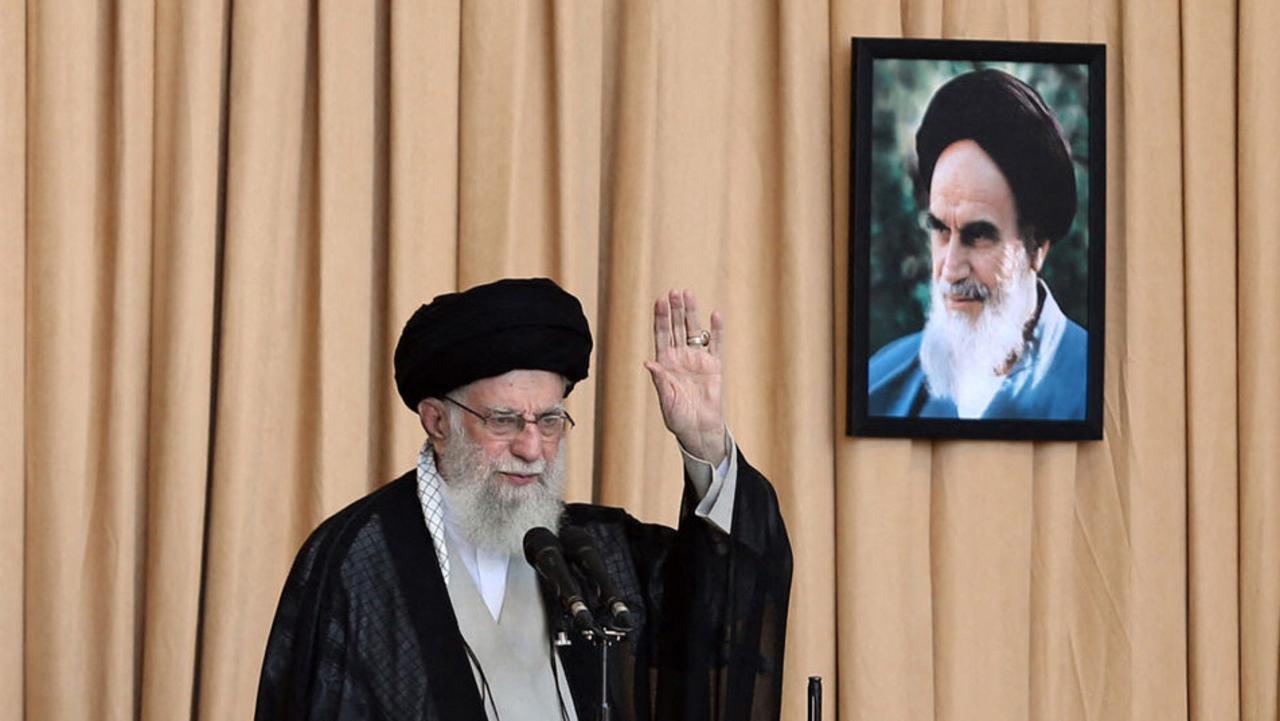
Iran’s Supreme Leader tears into Israel
Ali Khamanei referred to Israel as “bloodthirsty” and a “rabid dog” in his address at Friday prayers at the Grand Mosalla mosque in Tehran.
He said that Israel “will not last long” and defended Iran’s decision to attack the country on Tuesday.
“The move taken by our armed forces was the least punishment in the face of crimes of the Zionist regime,” he said.
He went on to describe Israel as a “vampire” regime, promising that the Islamic Republic will fulfil “any related duties” against Israel with “strength and fortitude”.
He has also called for “unity” among the Muslim world as the Middle East faces one of its most uncertain scenarios in years.
Khamenei said that Israel “cannot seriously harm” Hezbollah and Hamas, two of Iran’s “axis of resistance”.
“The resistance in the region will not back down with these martyrdoms, and will win,” Khamenei said.
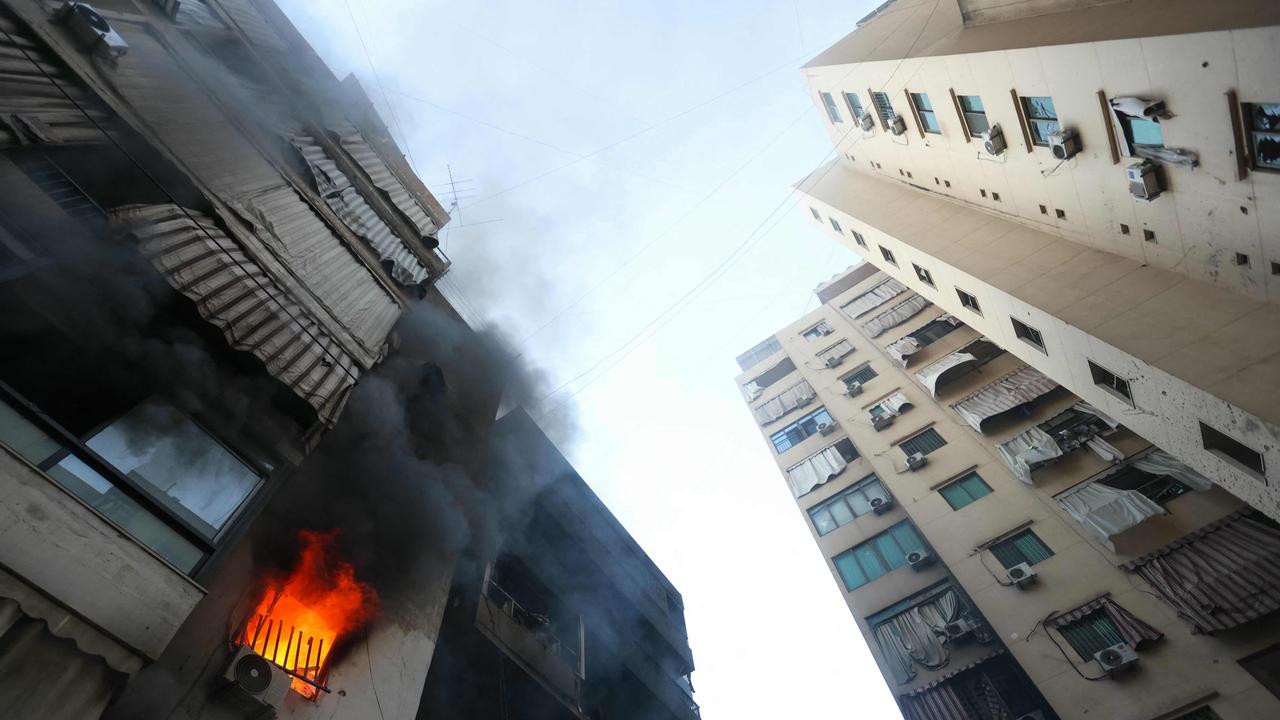
Israel bombs major route out of Lebanon
A key road connecting Lebanon with Syria has been hit by an Israeli strike, Lebanon’s transport minister told Reuters.
The missile hit the road near the Masnaa border crossing, creating a four-metre (12ft) wide crater.
Lebanon’s official news agency also reports that the road has been cut off, AFP news agency says.
The route has become a means of escape from Lebanon but the bombing will also prevent vital commodities from coming into the country.
Around 310,000 people, mostly Syrian refugees, crossed into Syria in recent days fleeing the conflict in Lebanon.
- with AFP